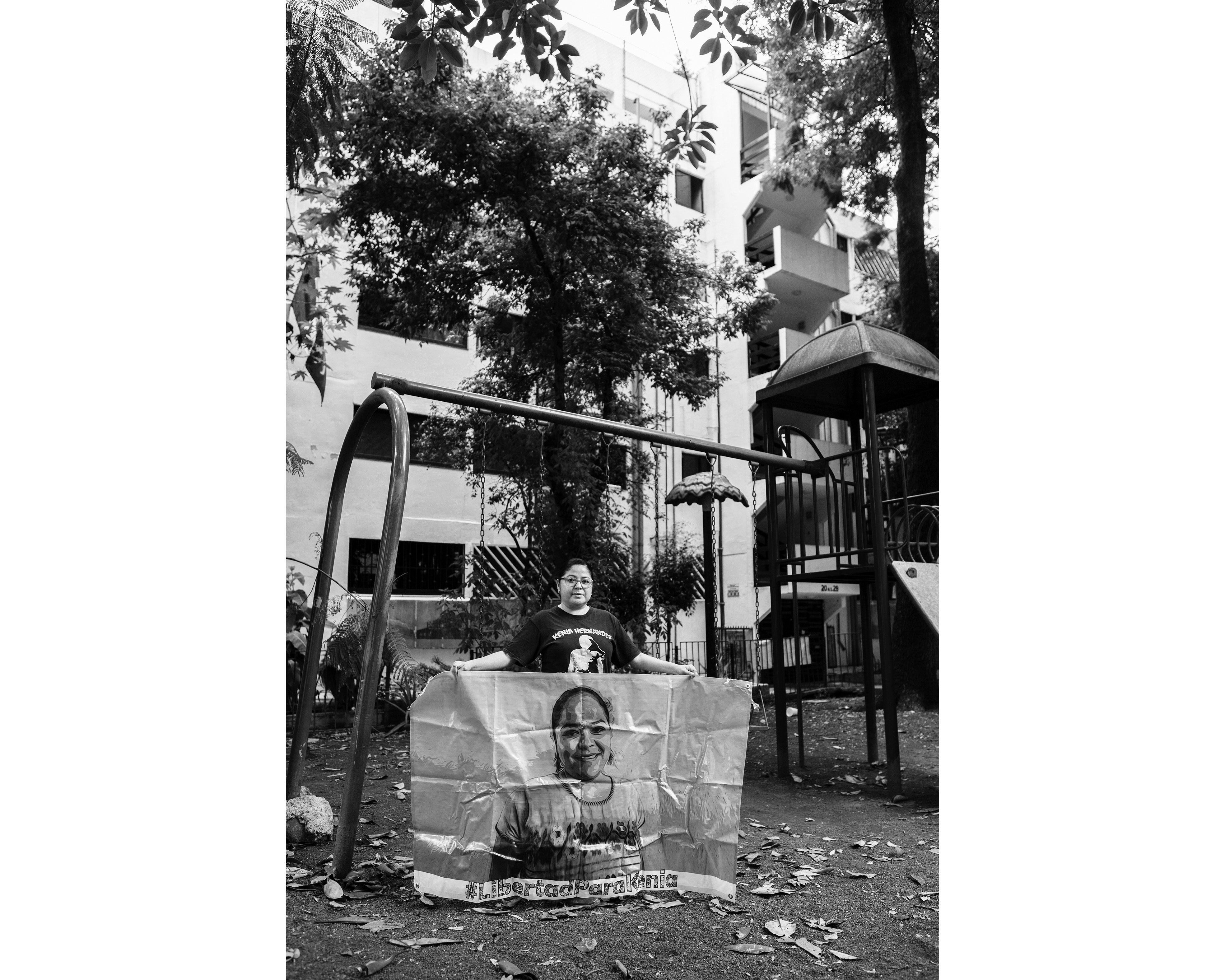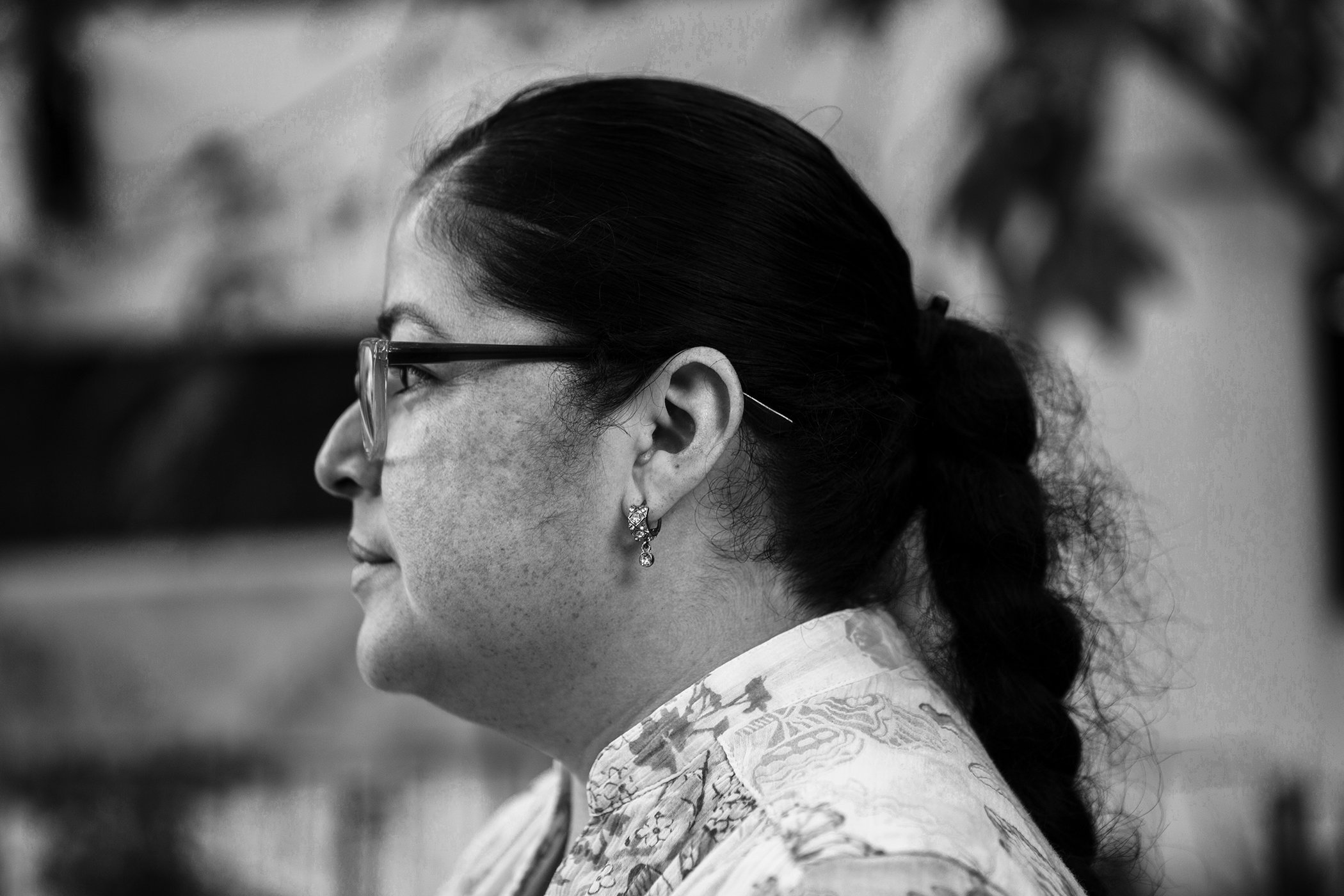Kenia Inés Hernández Montalván is an Indigenous Mexican activist who has been imprisoned in her home country since October 2020. She was arrested at a highway toll booth in Puebla state, where she had been protesting the imprisonment of other activists. The demonstration saw activists preventing staff at the toll booth from charging motorists, and allowing cars to pass through, which is a common form of protest in Mexico, as it raises awareness among citizens. However, those participating in such protests face the risk of being charged with trespassing and theft.
In February 2022, Hernández, who had remained in preventive detention since her 2020 arrest, was sentenced to 10 years and six months in prison for violent robbery and, in March of the same year, was sentenced to an additional 11 years for criminal damage for allegedly damaging a highway toll booth in the state of Mexico.
Hernández, 34, is the founder and coordinator of Colectivo Libertario Zapata Vive, a social movement focused on defending Indigenous peoples’ rights to their land that also works to raise awareness of, and secure the release of, political prisoners. Hernández’s close friend, Rubí Francisco Silva, spoke to Global Citizen about the case.
The persecution of Indigenous human rights and land defenders in Mexico is a recurring issue. These people suffer intimidation and violence from public officials, private companies, and drug cartels whose interests are perceived to be threatened by activists. So far in 2023, eight Indigenous land and rights defenders have been murdered, and one remains missing, according to Cultural Survival. Activists have also been imprisoned on charges considered to be arbitrary, in cases similar to that of Hernández's.
My name is Rubí Francisco Silva, I’m from the same town as Kenia — Xochistlahuaca, in the Mexican state of Guerrero — a remote town where there is no internet connection and from where travel is difficult due to its remote location. I’ve lived in Mexico City since the age of 3, but between the ages of 17 and 19, I lived in that town with my brother.
I didn’t have any friends, I was a difficult adolescent, and I had been diagnosed with rheumatoid arthritis. During break time at school one day, Kenia came up to me to say hello and she flashed me a smile, and it was the best thing that could have happened to me. From then on, Kenia always greeted me as a friend.
At the beginning, I was reluctant to begin a friendship with Kenia, but I felt confident due to her friendly attitude toward me. I always felt that she never judged me or singled me out. People told me that Kenia was very intelligent. She got the best grades in high school. She gave math classes to those of us who did badly in the subject. She always scored 10 out of 10. Kenia is very disciplined with her studies. When my mother went away to work, Kenia was really supportive. Once, when my mother was unable to send us money for food, Kenia offered to lend me 400 pesos ($25 USD) without me even having asked.
We’re really good friends. We both wanted to fly, to take on the world. We celebrated our achievements. I really trust Kenia. When I got ill with COVID, she wrote me a poem that filled me with strength.
 Rubí Francisco Silva holds a banner in support of her friend, Kenia Inés Hernández Montalván. Hernández is an Indigenous Mexican activist, who has been imprisoned since October 2020.
Rubí Francisco Silva holds a banner in support of her friend, Kenia Inés Hernández Montalván. Hernández is an Indigenous Mexican activist, who has been imprisoned since October 2020.
Before she was detained, I used to say to her, "Focus on your children, stop trying to help other people." But she would say, "What do you mean? How can I abandon those people?" She studied law to become a lawyer, and she’s interested in politics. She’s always been outraged by injustice. She is a passionate person, extreme and committed.
Seeing her imprisoned hurts me. Kenia is like my sister. She has two children, aged 11 and 8. She founded the Zapata Vive group, sought help from people to grow the organization, and she gets involved in cases of injustice, such as the case of a classmate’s cousin who was murdered.
On the day Kenia was detained, she had been helping another group. She knew that she could be detained — they had warned her that she could be — and yet, she went to Puebla anyway, to the demonstration. Kenia is capable of risking her life, her integrity, her freedom, to help other people. And even now, in prison, she says she would do the same again.
She likes to help people, but she doesn’t like violence. She has the gift of the word, and her weapons are words. How she expresses herself is what bothers the government. She only raises her voice to denounce injustice, and that’s what the government doesn’t like, and that’s why they made up charges against her. They imprisoned her to shut her up, but even on the inside, she continues to raise her voice.
Kenia likes to raise her voice — and raise it loud. She wants to make an impact. She wants to be taken seriously, and that puts her at risk, it has consequences.
Kenia is imprisoned in Federal Women’s Prison No. 16, in the state of Morelos. It’s a rehabilitation prison, and she has to work. Kenia is of the Amuzga ethnicity, and she pays for the transport and food for her children with the handcrafts that she makes and sells, working more than eight hours a day, making bracelets and beaded embroidery. It’s a tiring, physical job.
Once she spoke on the phone with her eldest son, and her son was telling her that when she is released from prison, he will be an adult — he’ll be 31. Her children live with their grandparents, but it’s not the same as living with your mother. They miss her motherly love.
Kenia’s imprisonment is arbitrary detention. The authorities presented fake evidence. Kenia was not in the town where she is accused of committing the crimes, and there is evidence that proves that. For a year and a half in prison, she was not able to see anybody, not even her family. Now, she is able to see her children. Her mother used to visit her, but then she got sick. Her father had an accident and now he can’t drive long distances. Her friends and I have taken care of the logistics of visiting her with her children. We bring them and take them back, as her parents can’t anymore, they’re old now. It’s a nine-hour trip by road.
Kenia can call us from the prison, but we’re not allowed to call her. Previously she was allowed one phone call per week and now she can call more often — but only a 10-minute call and that’s cruel because they cut off the call without warning and they don’t give her time to say goodbye.
 Rubí Francisco Silva poses for a portrait on Oct. 8 at Unidad Multifamiliar Tlalpan, in the South East of Mexico City, Mexico.
Rubí Francisco Silva poses for a portrait on Oct. 8 at Unidad Multifamiliar Tlalpan, in the South East of Mexico City, Mexico.
Kenia’s situation is more political than legal because the punishment has been brutal. It’s a trumped-up case because they are criminalizing her for her work as a defender of human rights. Her protests highlighted human rights violations, and the violence of organized crime. We carried out a protest to bring attention to Kenia’s case and they brought more charges against her.
Kenia has always been a person who has gotten involved in other people’s struggles and shining a light on those struggles makes some people feel uncomfortable. Her detention is the result of the criminalization of her organization because it defends Indigenous communities and highlights human rights violations.
It’s the federal highways agency (CAPUFE) keeping Kenia in jail. Kenia has been criminalized by the government. Before, if you looked her up on the internet, she would come up as "the toll-booth hijacker." The government orchestrated that campaign around her. But if you look her up on the internet now, it’s different, her case is now in the public eye.
Story as told to Adam Critchley; edited and condensed for clarity.
The 2023-2024 In My Own Words series was made possible thanks to funding from the Ford Foundation.

